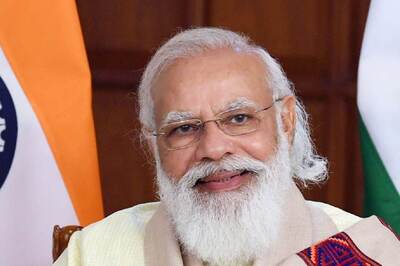
views
Inshallah ( إِنْ شَاءَ ٱللَّٰهُ) Meaning & Pronunciation
Inshallah translates to “if God wills.” “In” means “if,” “shā’a” means “willed,” and “Allāh” means “God Almighty.” When used together, they take on the full meaning of the phrase “if God wills it.” It has casual and formal meanings similar to the phrase “God willing” for English speakers. Inshalla is mentioned in Sura 18, Verse 23 of the Qu’ran, commanding followers to say “insha’Allah” after speaking of the future to remind them that everything they do is because God wills it.
Inshallah is pronounced “in-shall-AH.” It’s a shortened version of the phrase insha’Allah (pronounced in shā’a Allāh), which has the same meaning. The shortened version is more casual and often used in everyday conversation. The longer version is more formal and more often used in religious contexts.
Using Inshallah in Speech
Arabic speakers use it after talking about a future event. It’s used similarly to how English speakers use the phrase “God willing.” In this context, it doesn’t necessarily have a religious meaning in any but the loosest sense. The speaker is basically using the phrase to say, “I hope so” or “maybe.” “I’ll see you tomorrow, inshallah.” “Inshallah, we’ll have good weather this weekend, so we can have a picnic in the park.” “Try not to stress too much about this project. We’ll finish it on time, inshallah.” “Inshallah, he’ll get here before 6:00, so we don’t miss our reservation.”
Muslims use it to say nothing happens without God’s will. More formal religious uses of the phrase are similar to using it to mean “hopefully,” but there’s a more sincere tone. It’s meant as a genuine reminder of the will of God. The speaker – a Muslim or Arab Christian – may also refer to religious acts or important events. “Inshallah, I will be married next fall.” “I plan to perform the Hajj next year, inshallah.” “Inshallah, my children will grow up to be happy, healthy adults.” “We’re raising funds to build a new mosque. Inshallah, we can break ground next year.”
Used ironically, it means something will never happen. The speaker states something they wish would happen but don’t think it will. In some respects, they’re saying there’s nothing they can do about it, and it’s in God’s hands now. “She says she’s going to pay back the money tomorrow, inshallah.” “Inshallah, he promised to start working out with me every morning at 5:00.” “They said they were going to quit smoking for good this time, inshallah. “Inshallah, my son will clean up his room without being asked 500 times.”
It’s also used to decline invitations politely. Sometimes, a person may want to say no to an invitation, but they don’t want to be rude. They might tentatively accept but then say “inshallah” to imply that they probably won’t make it. It leaves the possibility that they will come open without making the commitment to actually show up. “Thank you so much for inviting me to your wedding reception. Inshallah, I will try to make it.” “I’d love to go to your oboe recital. Inshallah, I’ll let you know if I can make it.” “It’s so kind of you to invite me to your gender-reveal party for your baby. Inshallah, I will try my best to be there.” “Thank you for offering to set me up on a blind date with your cousin. Inshallah, I’ll see if I can free up my schedule.”
Inshallah sometimes means, “I don’t know.” In some cases, a speaker might answer a question along with the phrase “inshallah.” This means they aren’t absolutely sure of the outcome, but they certainly hope it turns out as expected. Question: “Will you finish the project by Thursday?” Answer: “Inshallah, we will.” Question: “Do you know if the concert is still happening next month?” Answer: “I hope so, inshallah.” Question: “Will the weather be good for our camping trip?” Answer: “Inshallah, we’ll see.” Question: Will you be at the meeting tomorrow?” Answer: “I’ll certainly try, inshallah.”
Who else says, “Inshallah”?
People in the Iberian Peninsula From the early 700s to the late 1400s, the Umayyad Caliphate ruled what is now Spain, renaming it al-Andalus. Muslim rule of the area included Spain, Portugal, parts of southern France and northern Italy, and many Mediterranian islands. The Emirate strongly influenced the language and literature of the area for hundreds of years, with many of their words seeping into the local languages. The Spanish word ojalá, Galician and Portuguese word oxalá all roughly translate to “hopefully” or “I wish” and come from Arabic influence.
Territories of the Former Ottoman Empire The Ottoman Empire, one of the largest and longest-lasting in history, ruled over the Eastern Mediterranean from 1301-1922. A Muslim Caliphate, the Empire strongly influenced culture, stretching all the way into Eastern Europe. The Turkish word inşaallah, Bulgarian and Macedonian phrases ako Bog da/daće Bog/daj Bože are borrowed from Arabic and mean “if God wills.”




















Comments
0 comment